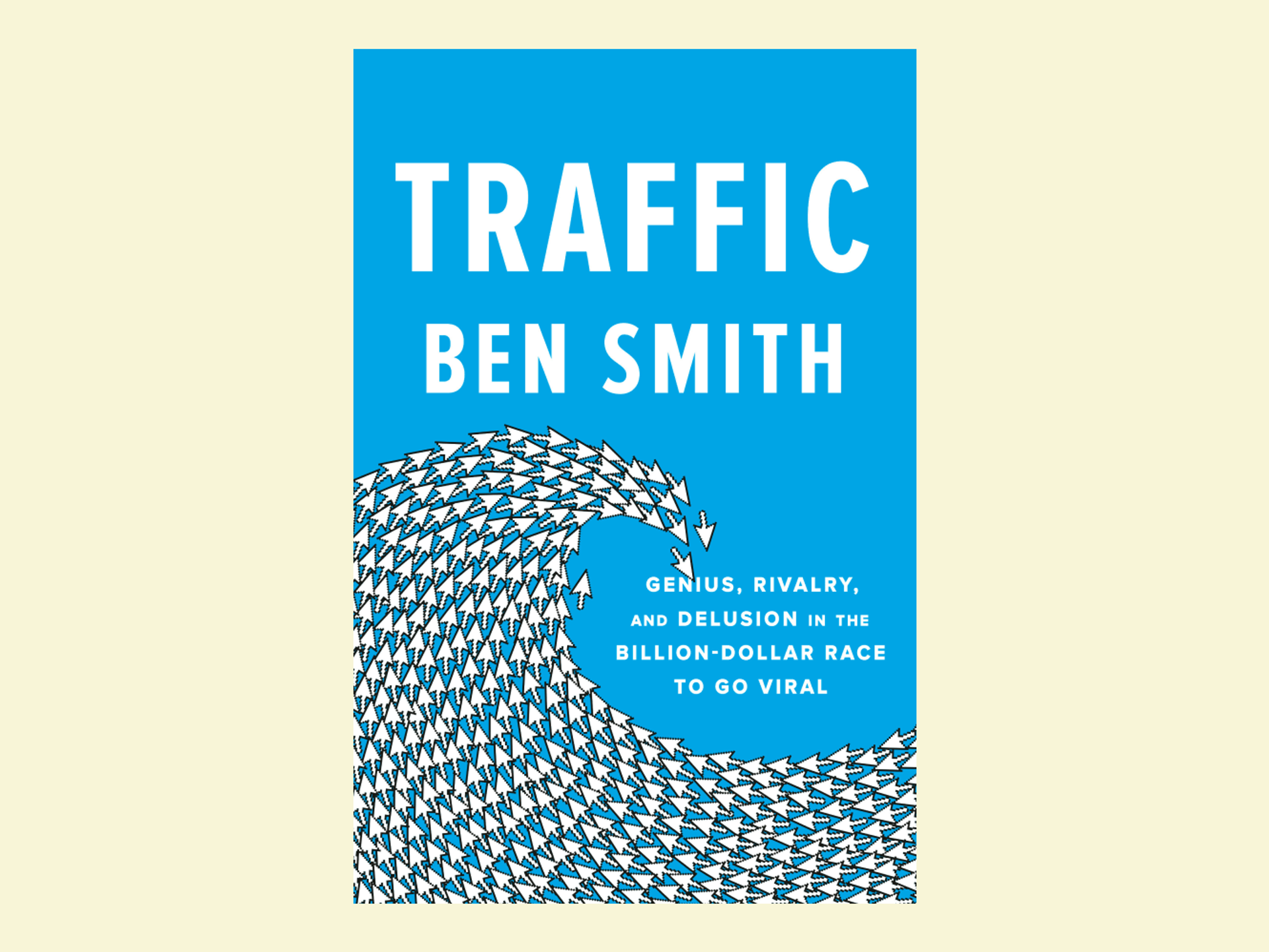The Excerpt
On June 10, 2015, as Gawker began to lose its footing and BuzzFeed was in the last few months of its pure, unworried rise, BuzzFeed founder Jonah Peretti traveled a mile north to the headquarters of The New York Times. He was there on a familiar, pleasant task: he was a mammal explaining to the dinosaurs how he’d evolved past them, why he was winning. He was always happy to share BuzzFeed’s secrets. It didn’t seem likely that the dinosaurs would evolve as they had in the movie Jurassic Park and learn to open doors.
Jonah turned up to address the board of directors of the Times in a hoodie, playing to type, in the gleaming fifteenth-floor conference room of a new building that many still thought the company couldn’t afford. The Times thought it needed a high-tech new space, a claim that became a bit of a joke when Snapchat took over the lease on the old building on West Forty-First Street, the one for which Times Square is named. The Times was already renting out floors to other companies to make up revenue. The man behind their slow and painfully deliberate transition to the internet, publisher Arthur Sulzberger Jr., presided, along with the CEO he’d brought in to speed things up, Mark Thompson.
Jonah’s interviewer was Cliff Levy, an ambitious editor who had won two Pulitzers and returned to oversee the creation of a news app. That always made Jonah laugh — that the only way you could build a new app at the Times was if you had not one, but two, Pulitzers. They sat in raised chairs, as Levy asked Jonah about what he’d built at BuzzFeed. Do millennials really consume content differently? Levy asked. Was news just a loss leader?
Then Levy turned to Arthur. “Bear with me for a second,” he said. He asked Jonah to imagine “that you were named executive editor of the Times tomorrow.” What would be the first three things he’d do?
It was a perfect softball to the nerd king. First, Jonah said, he’d ask the board for a raise. Then he’d go into his office and shut the door. And then he’d cry.
That got the anticipated laugh. After all, everyone shared the basic assumption in the summer of 2015 that BuzzFeed was riding the rising tide, and that the Times was flailing to grab hold of the new medium. But Jonah had misread the room. They were more confident than he realized. The story of the Times would be that of how the dinosaurs had begun to learn to open doors; that newspaper, too, would shape the new internet.
Excerpted from Traffic by Ben Smith, published by Penguin Press.
In this article:
Notable
- “Smith largely resists the temptation to claim that anything in his experience changed the world forever. That’s for Silicon Valley hagiographies. ‘Traffic’ is instead a picaresque, set among the muckrakers, Jezebels, dweebs, addicts and wing nuts of Silicon Alley, the notional New York City tech zone that runs, in theory, from Flatiron to Dumbo,” writes Virginia Heffernan in the New York Times.
- “Smith tells the story energetically, with plenty of insider gossip about the digital journalists who briefly became media stars (at least to a small circle of like-minded Manhattanites). But Traffic would be less worthwhile were it just a traditional narrative of the rise and fall of a business. Its insight lies in Smith’s reflections on how many of the techniques pioneered by Peretti and Denton have been absorbed into the mainstream. Everyone craves traffic now,” says John Gapper in the FT.
- “In his conclusion, Smith writes: ‘Those of us who work in media, politics and technology are largely concerned now with figuring out how to hold these failing institutions together or to build new ones that are resistant to the forces we helped unleash.’ Rome wasn’t built in a day. Nor was the web. Sometimes, creative destruction is just destruction, slapped with a gauzy label,” writes Lloyd Green in the Guardian.
- Jeff Jarvis says: “Ben tells the story so very well; he is an admirable writer and reporter. His narrative whizzes by like a local train on the express tracks. And it rings true. I had a seat myself on this ride.”
Room for Disagreement
Max Read, in the Washington Post: “There is lots of delusion in this book. There is also a little bit of rivalry. But I have to be honest. I do not think there are any geniuses.”
